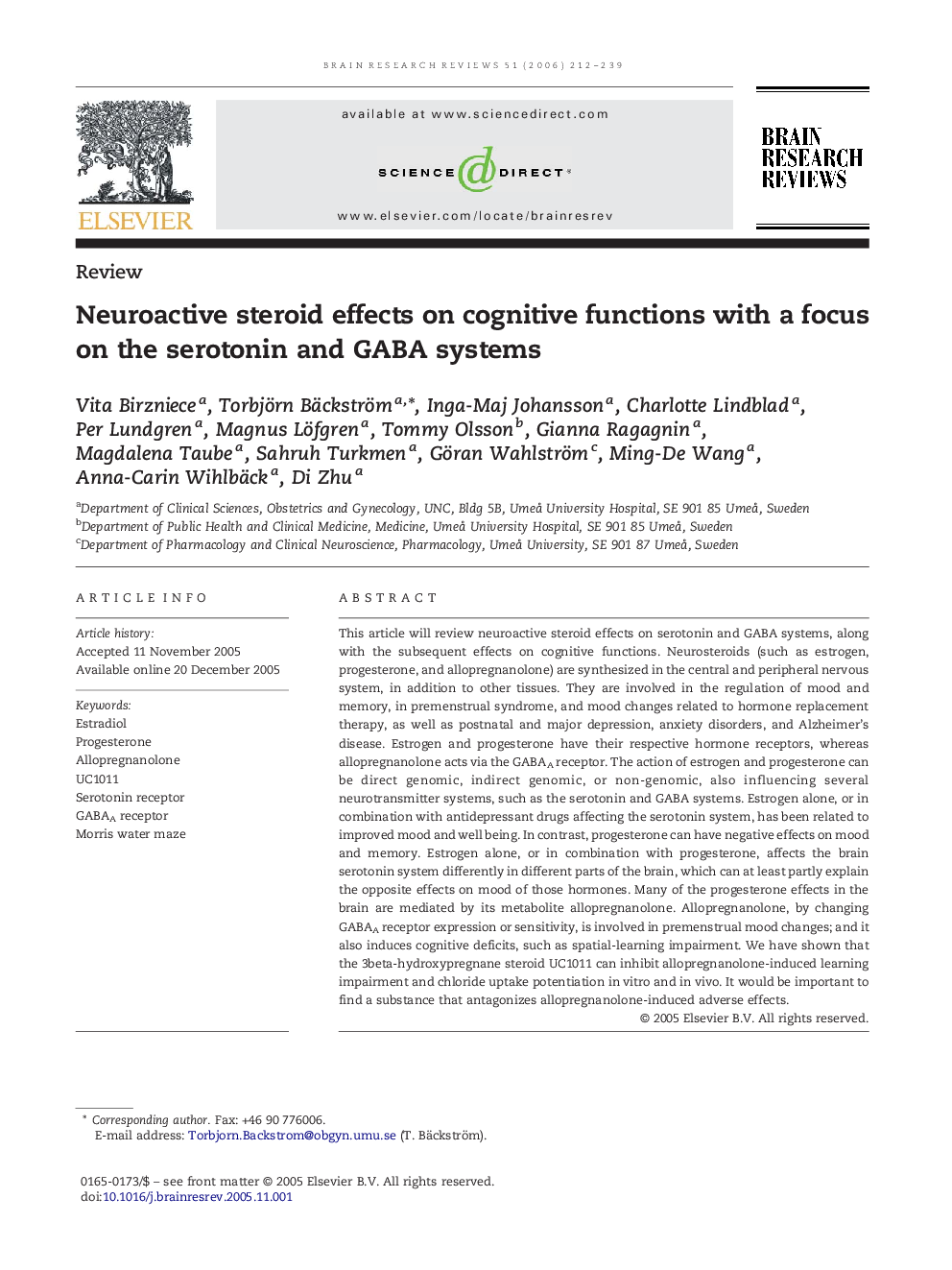| Article ID | Journal | Published Year | Pages | File Type |
|---|---|---|---|---|
| 4334109 | Brain Research Reviews | 2006 | 28 Pages |
Abstract
This article will review neuroactive steroid effects on serotonin and GABA systems, along with the subsequent effects on cognitive functions. Neurosteroids (such as estrogen, progesterone, and allopregnanolone) are synthesized in the central and peripheral nervous system, in addition to other tissues. They are involved in the regulation of mood and memory, in premenstrual syndrome, and mood changes related to hormone replacement therapy, as well as postnatal and major depression, anxiety disorders, and Alzheimer's disease. Estrogen and progesterone have their respective hormone receptors, whereas allopregnanolone acts via the GABAA receptor. The action of estrogen and progesterone can be direct genomic, indirect genomic, or non-genomic, also influencing several neurotransmitter systems, such as the serotonin and GABA systems. Estrogen alone, or in combination with antidepressant drugs affecting the serotonin system, has been related to improved mood and well being. In contrast, progesterone can have negative effects on mood and memory. Estrogen alone, or in combination with progesterone, affects the brain serotonin system differently in different parts of the brain, which can at least partly explain the opposite effects on mood of those hormones. Many of the progesterone effects in the brain are mediated by its metabolite allopregnanolone. Allopregnanolone, by changing GABAA receptor expression or sensitivity, is involved in premenstrual mood changes; and it also induces cognitive deficits, such as spatial-learning impairment. We have shown that the 3beta-hydroxypregnane steroid UC1011 can inhibit allopregnanolone-induced learning impairment and chloride uptake potentiation in vitro and in vivo. It would be important to find a substance that antagonizes allopregnanolone-induced adverse effects.
Keywords
Related Topics
Life Sciences
Neuroscience
Neuroscience (General)
Authors
Vita Birzniece, Torbjörn Bäckström, Inga-Maj Johansson, Charlotte Lindblad, Per Lundgren, Magnus Löfgren, Tommy Olsson, Gianna Ragagnin, Magdalena Taube, Sahruh Turkmen, Göran Wahlström, Ming-De Wang, Anna-Carin Wihlbäck, Di Zhu,
